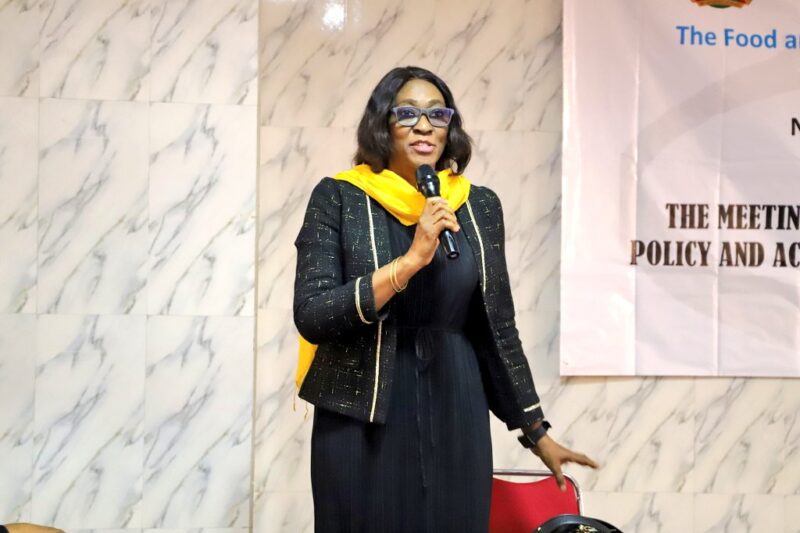Admin I Monday, June 24, 2024
NBMA speaks over concern on Tela Maize

ABUJA, Nigeria – The National Biosafety Management Agency (NBMA) has assured Nigerians that they should have nothing to fear in the consumption of Tela Maize.
The assurance was given by the biosafety agency following the concerns raised about the safety of consuming Tela Maize.
In a press statement issued by Gloria Ogbaki, NBMA’s Head, Information and Public Relations, the agency reiterated its commitment to ensuring the safety of Nigerians in the consumption of products of Genetically Modified Organisms (GMOs).
The statement reads in full:
“The Attention of the National Biosafety Management Agency has been drawn to the concerns of Nigerians as a result of the approval and lunch of TELA maize in Nigeria.
“The NBMA takes into serious cognizance the concerns of Nigerians as maize is a staple crop and of great importance to the country. We understand that there have been concerns and misinformation circulating about the recently approved TELA Maize in Nigeria.
“The National Biosafety Management Agency (NBMA), is committed to ensuring transparency, safety, and unbiased decision-making regarding genetically modified organisms (GMOs).
“NBMA wishes to state here that the safety and health of Nigerians is of topmost priority, we will not compromise on this. The Agency has done a proper risk assessment and analysis were conducted to ensure the safety of this product for human health and the environment.
“The application for TELA Maize was thoroughly examined by two committees comprising of experts and scientists composed of experts from the various relevant Agencies and the Academia, namely National Agency for Food and Drug Administration and Control (NAFDAC), Standard Organization of Nigeria (SON), Nigerian Agricultural Quarantine Service (NAQS), Federal Competition and Consumer Protection Commission (FCCPC), National Agricultural Seed Council (NASCs), universities, research institutions among others who are renowned professionals in the particular field and our internal review process confirmed that TELA Maize meets safety standards. This ensures that the regulatory oversight of GMOs by NBMA meets strict safety standards and poses no adverse risks to health or the environment.
“NBMA acknowledges that there have been misleading claims about TELA Maize, including allegations that it is fake and laced with insecticides/pesticides. These claims are not based on scientific evidence and are designed to create unnecessary fear and panic in the country as TELA maize was developed by Nigerian scientists in the Institute for Agricultural Research (IAR) and these scientists and researchers took into cognizance the challenge farmers have faced over the years in the planting of maize. This maize variety rather reduces the use of pesticides while boosting productivity thereby having better health benefits.
“We wish to assure Nigerians that this maize variety has been certified to be as safe as its organic or conventional counterpart as there are no chemicals or insecticides laced in them as claimed by some groups in Nigeria.
“The NBMA operates independently and without bias as our decisions are guided by scientific evidence, international best practices, and with the well-being of Nigerians in mind.
TELA Maize was modified for insect resistance and drought tolerance and our risk assessment considered exposure to the environment, nutritional composition, and potential impacts on biological diversity.
“We also wish to state here that TELA is cultivated naturally and we are confident that TELA Maize poses no harm to humans or the environment.
“We urge all Nigerians to remain calm and trust in the rigorous evaluation process. TELA Maize has been approved based on scientific evidence, and its benefits to farmers are significant.
“The health and safety of Nigerians remain our topmost concern. We encourage open dialogue, scientific literacy, and evidence-based discussions. Let us work together to ensure food security, sustainable agriculture, and informed decision-making in Nigeria.”

